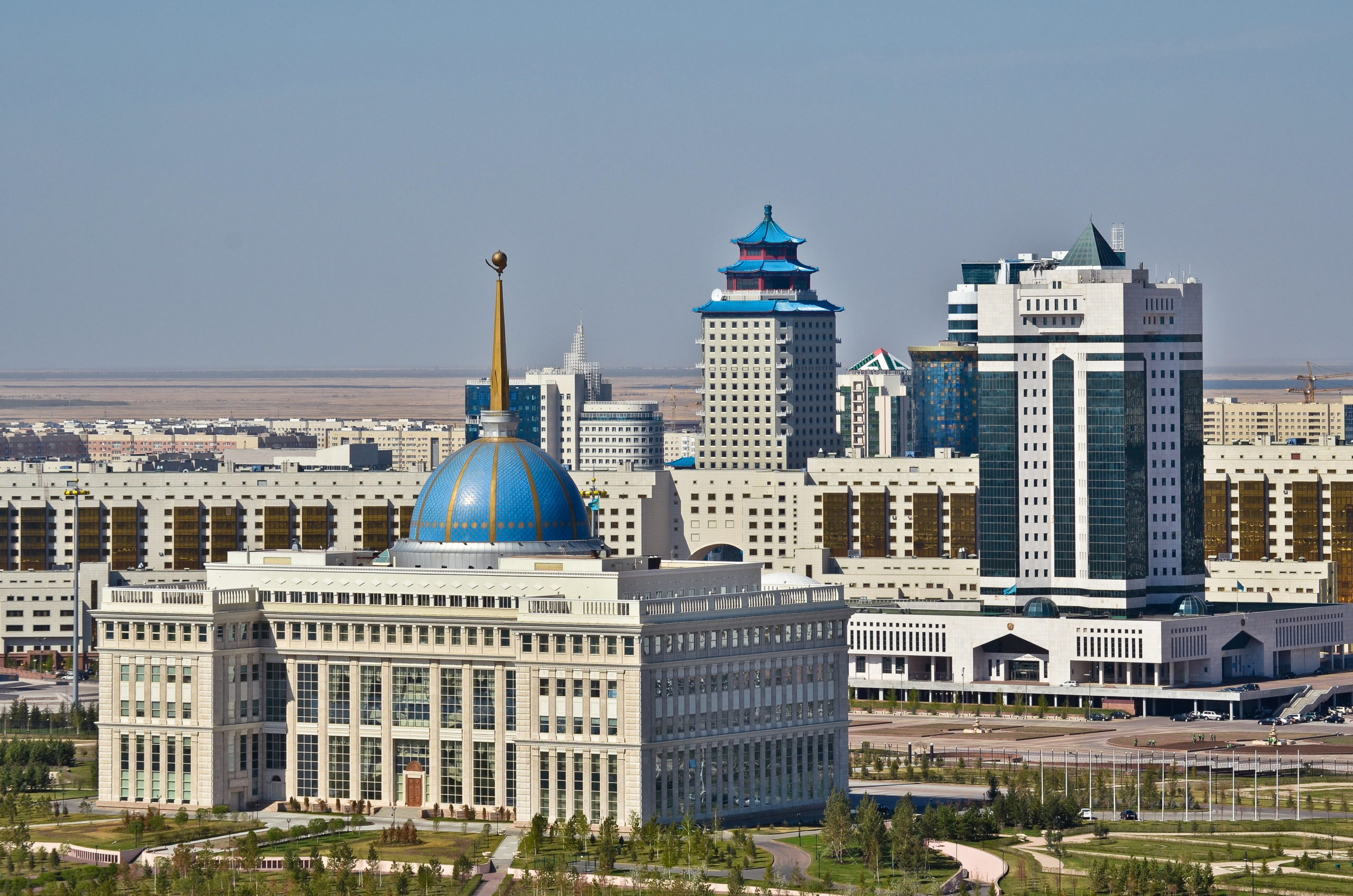Similar to other global economies that suffered a serious slump worldwide as a direct consequence of the pandemic, economic growth in Kazakhstan fell by 1.7 percent since January compared to the same period in 2019, when the economy clocked in at a remarkable four percent growth, said Kazakh Prime Minister Askar Mamin as he briefed Kazakh President Kassym-Jomart Tokayev on the country’s latest social and economic developments.

In 2019, Kazakhstan recorded a higher than expected economic growth of 4.5 percent. Photo credit: Kazakh Ministry of Foreign Affairs
In its latest Global Economic Prospects report, the World Bank has officially stated that the COVID-19 pandemic caused the greatest recession the world has seen since World War II and forecasts it will drive the global economy down by 5.2 percent this year.
In April, the Kazakh Ministry of the National Economy downgraded its GDP forecast from an initial 4.1 percent to 3.2 for this year due to a plunge in oil prices and other negative consequences of the pandemic.
Mamin said that fundamental positive dynamics are still observable across several key industry areas such as mining, refining, agriculture, and investments. He also informed the President on the status of the country’s fight against the coronavirus infection, the work to revive economic growth, and the completion of spring field works.
During a June 9 government meeting, Kazakh Minister of the National economy Ruslan Dalenov reported a 4.8 percent growth in production, while the services sector decreased by 6.2 percent.
“The growth was in the majority of the regions. The biggest growth was recorded in the Atyrau and Kostanai regions, while the decline was in Kyzylorda, Aktobe, Mangistau regions, and Shymkent city,” said Dalenov.
“We have observed continued growth in the manufacturing sector. The service sector has seen steadily recovering since May. The trade balance also shows high growth. In the manufacturing sector, there has been a 5.9 percent increase in construction, a 5.2 percent increase in mining, a 4.9 percent in the processing industry, and 2.2 percent in agriculture,” said the minister.
In services, transport declined by 14.1 percent, trade by 12.3 percent, property operations by 4.8 percent. Communications services, however, increased by 9.2 percent.
To revive economic growth, the government recently adopted a comprehensive plan for 2020, he added. The document includes 164 measures across 10 areas, including the development of small and medium-sized businesses, employment, support for the services sector, attracting investors, ensuring macro stability, among other measures.
“The comprehensive plan consists of concrete practical measures. This includes the creation of the industrial development fund. It also envisions preferential loans to processing industry companies at a three percent rate,” said Dalenov.
The nation’s Business Road Map 2025 plan includes a wide range of support measures for businesses with a new measure – microloans scheduled to be introduced as well.
“During this difficult time, supporting micro-businesses is a complicated issue. Addressing structural problems regarding access to loans and collateral is a factor hampering the development of small and medium businesses, particularly microbusinesses. Therefore, the road map will have measures for that. Financing will be available at a six percent rate through subsidies,” he said.
The loans will amount to a maximum of five million tenge (US$12,537) to replenish working capital and up to 20 million tenge (US$50,148) for production needs.
Kazakhstan has nearly 1.6 million small and medium-sized businesses. Their share in the gross domestic product grew from 24.9 percent in 2015 to 30.8 percent in 2019, while the nation set a goal to bring the figure to 35 percent by 2025 and 50 percent by 2050 and include nearly four million people.
Small and medium-sized businesses have access to preferential loans, as the government has allotted 1 trillion tenge (US$2.5 million) for that purpose this year. This includes 600 billion tenge (US$1.5 million) through the National Bank announced by Tokayev in March to support businesses that suffered losses due to the pandemic and 400 billion tenge (US$1 million) as part of the Economy of Simple things program designed to boost domestic production of goods and services used by consumers on a daily basis.
All measures, noted Dalenov, are aimed at mitigating the negative effects of external shocks as well as at addressing urgent economic issues and supporting domestic production and businesses.
Tokayev is expected to chair an expanded government meeting in July to review the country’s development in the first half of 2020 and set concrete goals to overcome the crisis.

